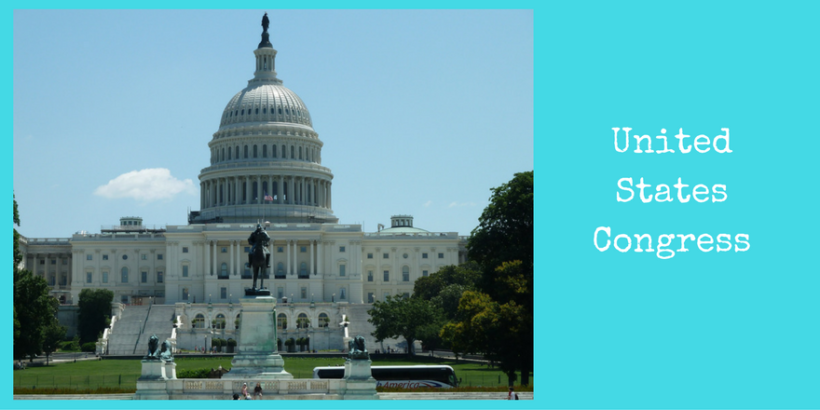21 October 1997
 Floor statement by Rep Newt Gingrich regarding H.R. 830
Floor statement by Rep Newt Gingrich regarding H.R. 830
[Extensions of Remarks] [Pages E2016-E2017] From the Congressional Record Online through the Government Publishing Office [www.gpo.gov] A COMPELLING ARTICLE ______ HON. NEWT GINGRICH of georgia in the house of representatives Tuesday, October 21, 1997 Mr. GINGRICH. Mr. Speaker, today I call attention to a recent editorial in the Washington Post by George F. Will, entitled ``Melding in America.'' Mr. Will eloquently encourages the Office of Management and Budget [OMB] to add a sixth racial category to the next census form: multiracial. Not only would such a designation be more accurate, it would also represent society's acknowledgment that a child should never be forced to choose between maternal and paternal heritages. Additionally, creating such a category would serve to diffuse the politics of grievance groups that use membership in a particular race to claim victim status and thus recompensation for wrongs real or imagined. America is a country founded upon the idea of individual rights--not rights determined by one's skin pigmentation. I encourage all of my colleagues to read Mr. Will's compelling article. [From the Washington Post, Oct. 5, 1997] Melding In America (By George F. Will) An enormous number of people--perhaps you--are descended, albeit very indirectly, from Charlemagne. And an enormous number are descended from Charlemagne's groom. Trace our pedigree back far enough, you may find that you are an omelet of surprising ingredients. Booker T. Washington, Frederick Douglass, Jesse Owens and Roy Campanella each had a white parent. Martin Luther King, Jr. (who had an Irish grandmother and some Indian ancestry), W.E.B. DuBois and Malcolm X had some Caucasian ancestry. The NAACP estimates that 70 percent of those who identify themselves as African American are of mixed racial heritage. And then there is Tiger Woods, who calls himself ``Cablinasian''--Caucasian, black, Indian, Asian. Bear such things in mind as the Office of Management and Budget decides whether to make a small but consequential change in the census form. The 1790 census classified Americans in three categories-- free white male, free white female, slave. In 1850 ``free colored`` was added. Then came mulatto, octoroon and quadroon (one-eighth and one-quarter black). In 1890 Chinese and Japanese were included as distinct races. Today there are five categories--white, black, Asian/Pacific Islander, American Indian/Native Alaskan and other. Now there is a rapidly spreading belief that the ``other'' category is unsatisfactory, because it does not contribute to an accurate snapshot of the population, and it offends sensibilities: Why should a child of a white-black marriage be required to identify with one parent, or as an ``other''? So OMB is considering adding a sixth category-- ``multiracial.'' This would serve the accuracy of the census in a nation experiencing a rapid surge in interracial marriages, which increased about 550 percent between 1960 and 1990. The number of children in interracial families rose from 500,000 in 1970 to 2 million in 1990. Between 1960 and 1990 the percentage of African American marriages involving a white spouse more than tripled, from 1.7 percent to 6 percent. Sixty-five percent of Japanese-Americans marry someone of another race. The multiracial category would serve civic health by undermining the obsession with race and ethnicity that fuels identity politics. Such politics proceed on the assumption that individuals are defined by their membership in this or that racial or ethnic group, often a group that cultivates its sense of solidarity by nurturing its grievances. The multiracial category is opposed by many who have a stake in today's racial spoils system, and thus favor maintaining the categories that help Balkanize America. It is estimated--probably too conservatively--that 10 percent of blacks would check a ``multiracial'' box on the census form. As more and more people accurately identify themselves as ``multiracial,'' the artificial clarity of identity politics will blur. The more blurring the better, because it will impede application of the principle of categorical representation--the principle that people of a particular group can only be understood, empathized with and represented by members of that group. Today some native Hawaiians want out of the Asian/Pacific Islander category, and some Indian and native Alaskans do not want the native Hawaiians included in their category. Some Creoles, Americans of Middle Eastern descent (there are 2 million of them), and others want their own categories. Such elbow-throwing prickliness is one consequence of government making membership in distinct grievance-groups advantageous. Race and ethnicity are not fixed, easily definable scientific categories. The law once regarded the Irish ``race'' as nonwhite. Today, ethnicity and race can be, to some degree, matters of choice. Many Hispanics regard ``Hispanicity'' as an attribute of race, others are more inclined to identify themselves as Hispanic when it is not presented as a racial category. OMB's decision will follow last week's report from the Commission on Immigration [[Page E2017]] Reform, which recommends a ``new Americanization movement'' emphasizing the melding of individuals rather than the accommodation of groups. It argues that national unity should be built upon a shared belief in constitutional values, and that the nation ``admits immigrants as individuals'' and must ``emphasize the rights of individuals over those of groups.'' Today the government concocts ``race-conscious remedies'' such as racial preferences for conditions it disapproves. This encourages Americans to aggregate into groups jockeying for social space. Perhaps it would be best to promote the desegregation of Americans by abolishing the existing five census categories, rather than adding a sixth. However, the ``multiracial'' category could speed the dilution of racial consciousness. One criticism of this category is that ``multiracial'' does not denote a protected class under the law and therefore gathering data about those who think of themselves as ``multiracial'' serves no statutory purpose. To which the sensible response is: good.

